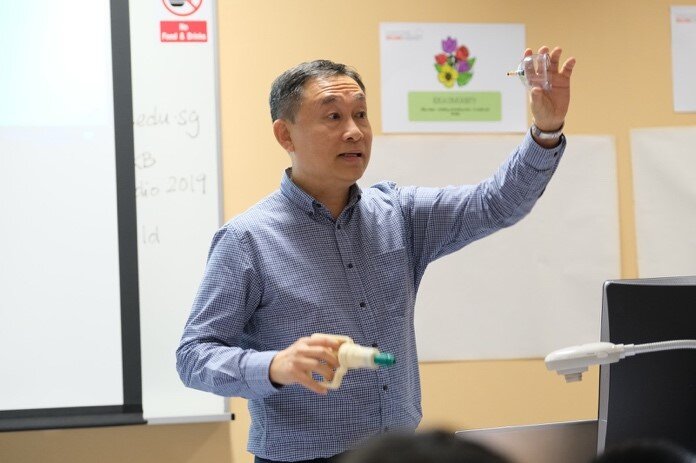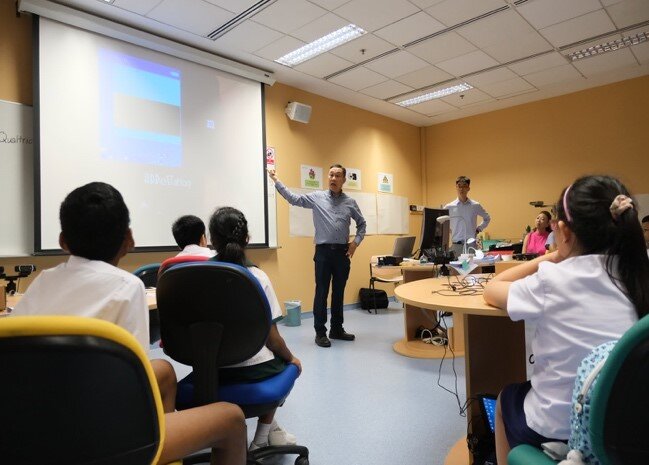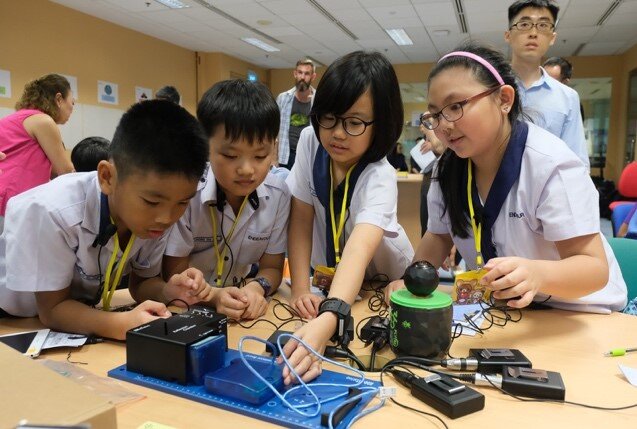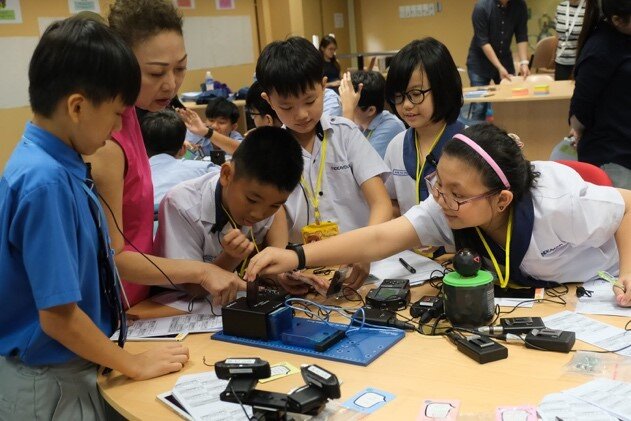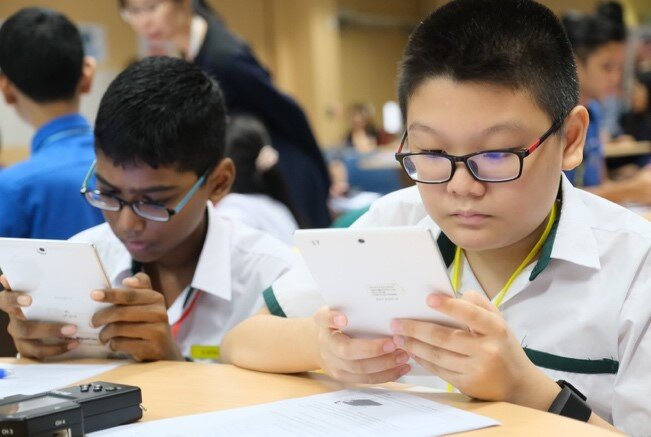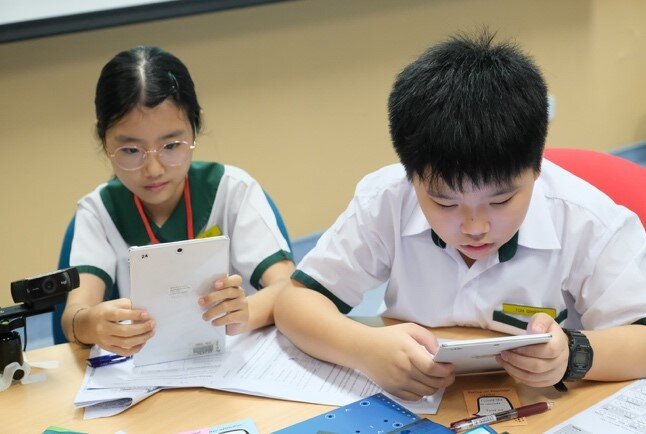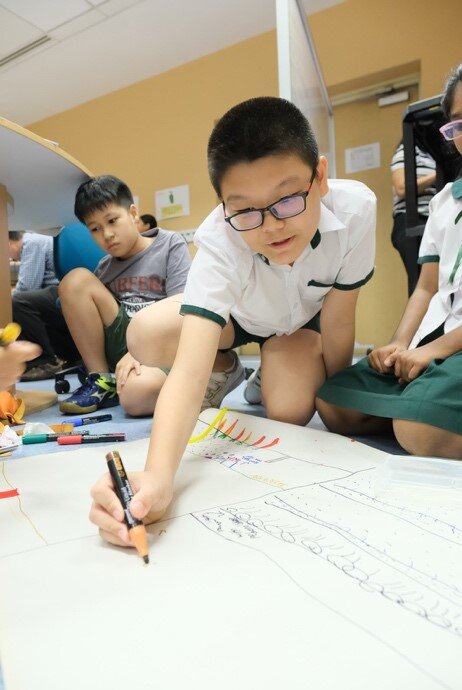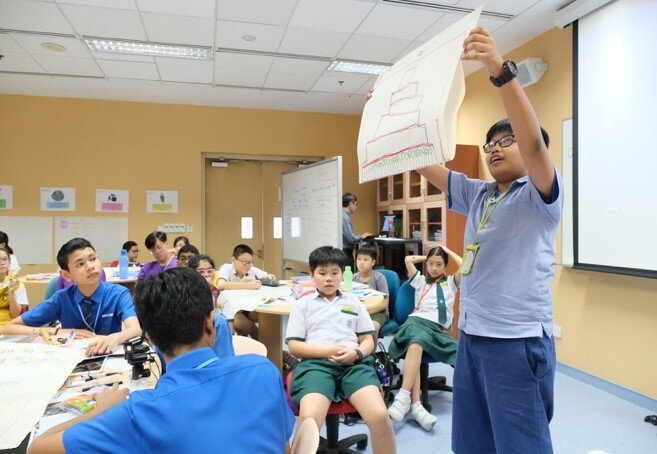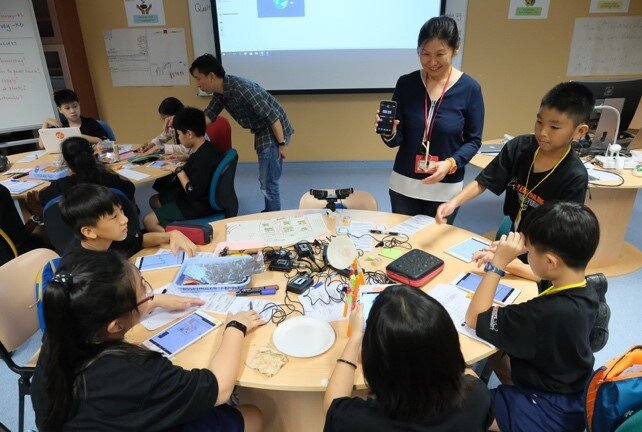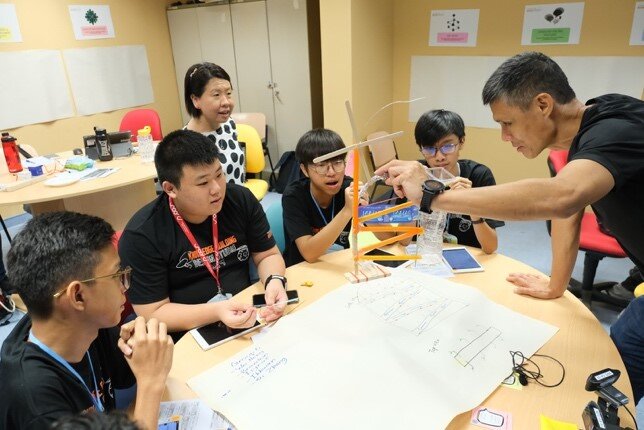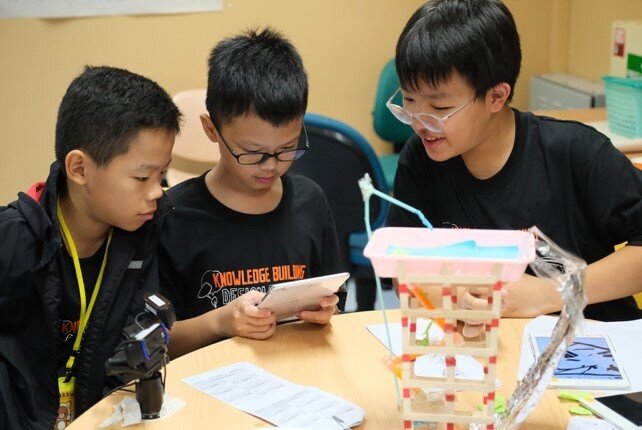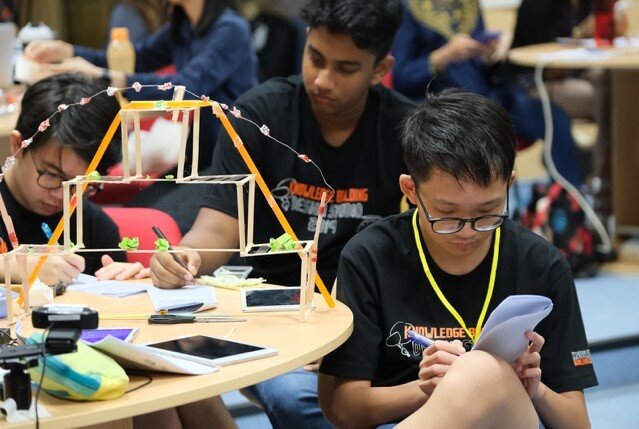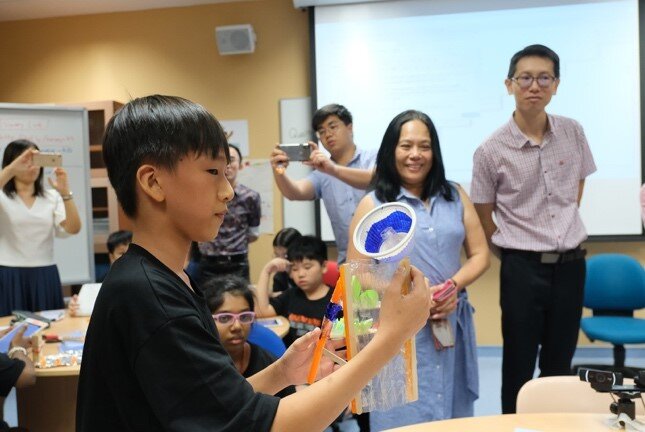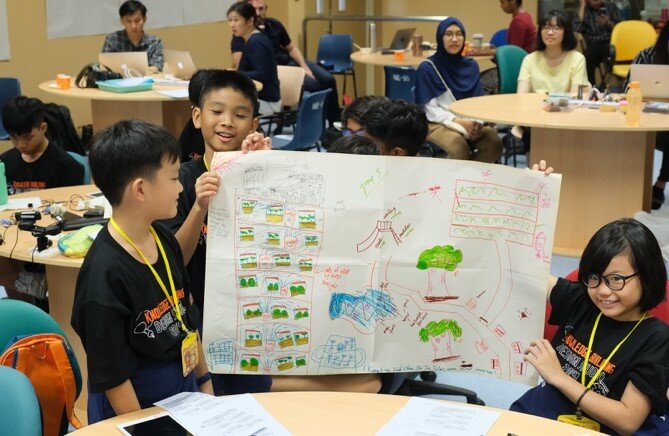Knowledge Building Design Studio 2019
This year’s Knowledge Building Design Studio, themed ‘Sustainable Cities and Communities’, took place on the 19th and 20th of November. It was a resounding success for both students and teachers who were involved in the camp.
“We love the building part and to be able to talk about the same problem on KF, is quite good. I really like it”.
- Student
“This is the best PD I have ever attended, to see what the student can do , really great!”
- Teacher
A Knowledge Building that cuts all age and experience barrier!
This year, the KB community moved away from sharing of practice to a more active design of a KB experience for students. From an idea conceptualised since January 201, the community of teachers and researchers felt that a small group of nominated students (3-5) from each school can take on the role of explaining knowledge building to their peers and other teachers when they returned to their classrooms with an enhanced KB experience through their interaction with experts and researchers at the KB Design Studio. The research component was integrated into the design studio as a way to consolidate the design and to translate into practical strategies, lessons and tools to be adopted back in schools to improve the KB practice.
The aim of the KB Design Studio was to engage students in KB discourse with scientists and environmentalists and give students a space to work creatively with ideas. Students of different ages and background proved that they are capable of designing, conducting research, improvement of ideas, creating and analysing prototypes that can tackle real world problems on sustainable food source and transportation.
The Design Studio adopted a highly collaborative approach to move beyond the boundaries of traditional research. Teachers and students were able to create and participate using research sites, work together with scientists and experts as a community, to advance the notion of a new environment and assessment for knowledge building. The knowledge building theories, pedagogies and technologies that were adopted in this Design Studio are derived from decades of Singapore-based innovation pedagogy research undertaken by the Learning Sciences group in NIE.
Outline of Activities
The Design Studio kicked off with a talks by experts about the life of a scientist to intrigue as well as motivate students to take an inquiry-driven perspective towards learning. This was followed by the presentation of the problem, which was to build a prototype that can be implemented in cities so as to promote sustainable living, posed for the students to work on for the rest of the Design Studio. Throughout the rest of the day, the students engaged with experts in vertical farming and sustainable living in order to grow their knowledge and to improve their ideas continuously. Students were able to engage in an experiments presented by the experts and subsequently used Knowledge Forum to share their ideas with their peers.
On the second day of the Design Studio, students started to build their prototype using the knowledge they had learned from the session with the experts the day before. Students had the opportunity to discuss the issues that they had in solving the overarching question and were involved in collecting and analysing data to improve their prototype. Finally, they had to present their prototype to a panel of scientists and representatives from the farming community.
Overall, the students’ responses were very encouraging and overwhelmingly positive. Teachers were initially worried that their students could not manage the tasks but the students excelled and were able to enjoy the learning process. The students reflected that they enjoyed working with friends from other schools, loved the challenging tasks – especially when tasked with the building of a vertical farming prototype and the subsequent sharing with the community. The students were able to advance their understanding on the Knowledge Forum, reflect on their emotions during the learning process, and above all, be able to have fun during the period of the Design Studio.
Overall, the students felt accomplished with their prototypes but they were equally pleased that they can be challenged to improve their knowledge and rise to the challenge. Teachers who joined in the conversation were also pleasantly surprised that the questions and challenges left them thinking hard and also want to find out more. As a conclusion, teachers and students were able to participate in multiple collective rise-above episodes at the Design Studio, leaving everyone clearer about what it means to be on a continual improvement trajectory.


